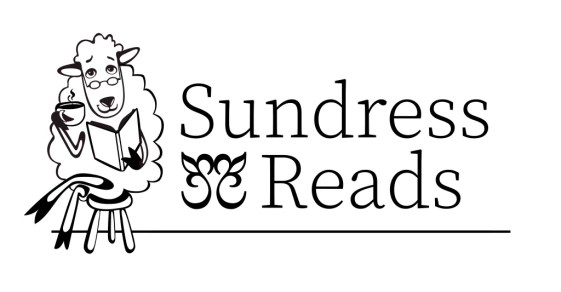The title of Teow Lim Goh’s Faraway Places (Diode Editions, 2021) is at once truthful and misleading—a collection concerning intimate natural places and the profound emotional memories that accompany them, it honestly, heartbreakingly reflects on how our man-made creations have distanced us from said places and ourselves. Goh’s deliberate, attentive poetry asks us to reckon with our current notions of the natural world as a thing to control, while also relating these notions to womanhood and more broadly to love itself. In Faraway Places, the world is imbued with an aching sense of loss, but not one that is irreparable, as Goh simply and beautifully shows us how to cherish the world with wonder again.
The collection almost immediately begins with the radical reimagination of the natural world that we find time and time again in Goh’s work. In “Black Orchid,” for instance, she states that “We look at flowers as a way to know / where we are.” Flowers, which we might perceive as purely aesthetic additions to land, are here imbued with deeper meaning: they exist to provide intimate insight into the landscape itself. Everything in nature has a significant message for us, Goh implies, if we take the time to look, to pay attention. Another natural space the collection frequently meditates on—the sea—is also repeatedly reimagined, beginning with the poem “Borders,” which declares, “The sea is the edge of land / and the beginning of another world.” Rather than allowing the sea to be a definitive end to explorable territory, Goh eagerly enters it: “the water will hold me— / I learn to swim.” Here, she reminds us that no border is impermeable, that even the most intimidating of natural spaces can welcome us as long as we learn its ways.
But while Faraway Places loves to show us the rich meaning natural spaces are saturated with and their wild openness to those who truly seek to understand them, it also depicts the painful reality of man-made spaces—gardens, houses, fences—and their accompanying sense of profound loss. These spaces all have one thing in common: they are created to divide, to control, to tame the natural world. Goh shows us that it is this human compulsion to force partitions where they would not naturally occur that utterly obscures our understanding of nature itself. “Stars” is where she first mourns the loss of shared memory and experience, plaintively reflecting that “Those / who know the lore can use [stars] / to find their way / in the world. But I cannot seem / to remember.” This absence, this want, is more explicitly linked to man-made space in “Split,” where she tells us that in her memory, “I can see the house I lived in, the schools / I went to, the gardens I walked in the evenings. / What I don’t remember is how it all felt, / the textures of the sea and sky.” Artificial spaces—the house, the school, the gardens—are able to be visually remembered at the surface level, but Goh emphasizes their destruction of the deeper emotional connection with sea and sky.
However, Goh is not without hope, acknowledging the ways in which nature is not a passive victim of man-made creation but a quietly resistant force. Her poem “Island” describes the garden of the speaker’s childhood as “overgrown,” subtly implying the ways nature continues to evolve despite the limits we place around it, and it concludes with the lines “The coconut / fell and bobbed in the waves, too dry / and hard to eat, the shell broken / only by a knife,” which give even the coconut a semblance of agency, refusing to allow itself to be harvested and broken as humans perhaps intended to do with it. In “Birdsong,” too, Goh demonstrates the wordless resistance of nature with the opening lines “At the tropical aviary, I wanted to listen / to the birds, look / at their splendid feathers. / I find instead silence. Macaws / hang their heads.” The power of the birds is their very silence, denying the human onlookers their voice, refusing to serve as captive entertainment. Towards the end of Faraway Places, we see Goh bring to light a parallel we might have subconsciously picked up on: the way the experience of nature, captured and controlled, uncannily resembles the experience of being a woman. “Wings” explicitly makes this comparison, opening with “Maybe she is a dancer, or a bird—,” and, similar to “Birdsong,” Goh suggests that the main form of female power is the power to withhold, stating that “She never reveals her silhouette.”
More broadly, the collection bears a universal message about love: that to love is to release the compulsion to control. “January,” one of the collection’s concluding poems, ends with the speaker’s reflection that perhaps “bearing / witness is the deepest form of love.” Goh shows us the ways we lose our intimacy with nature through our addiction to dominion and the ways nature silently but forcefully pushes back, but she also illuminates a solution through which we can live in harmony: by allowing nature to do what it wants. Through Goh’s words, then, we see the world as a friend, a lover—constantly evolving, calling us to reimagine it with wonder, and most importantly, to let it be.
Faraway Places is available at Diode Editions
Kaylee Jeong is a Korean American writer, currently studying English at Columbia University. She edits for Quarto, Columbia’s official undergraduate literary magazine, and serves as a poetry reader for the Columbia Journal’s Incarcerated Writers Initiative. A 2019 Sundress Best of the Net finalist in poetry, her work has been featured in diode, BOAAT, and Hyphen, among others.



